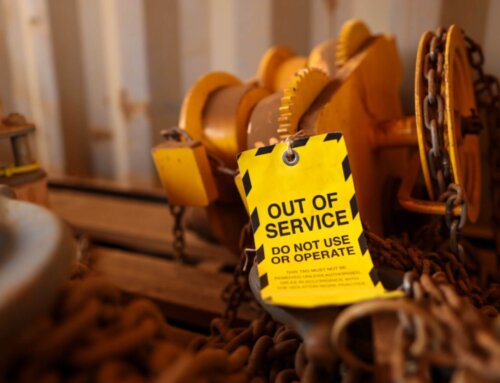This article was updated in December 2022.
If you’ve been injured in an accident at work and are thinking about making a compensation claim, there is no reason why you can’t instruct a personal injury solicitor to act for you as soon as you like, after the accident.
It will be some time before all the different parts of your claim can be put together, such as who was at fault for the accident (liability), getting together the medical evidence to prove your injury claim (general damages) and working out your monetary claims e.g. loss of earnings (special damages).
However, it’s never too early to ask a solicitor to start the claims process. Besides, it’s better to start gathering evidence in support of your injury claim whilst the memory of the accident is fresh in your mind and those of any witnesses who saw it.
Are there any personal injury claims time limits?
Whilst it’s never too early to start an accident at work claim, if you leave it too long after an accident to claim, you may find that you become ‘time barred’, i.e., out of time to make a claim.
The time limits are fairly strict too, meaning that if you miss them, you will only be allowed to bring an accident at work claim (or in fact any other type of personal injury claim), in exceptional circumstances.
The following paragraphs contain important information you need to know, if you are thinking about asking a personal injury solicitor to file a claim for you now or in the future. The sections that follow are equally important if you were injured in an accident some time ago but never got round to claiming.
What is the time limit for starting a personal injury claim?
The time limits are set out in an Act of Parliament, called The Limitation Act 1980. Section 11 of this legislation contains the relevant time limits in personal injury cases. The time limit for making a claim is known as the limitation period, and for most personal injury claims there is a three-year time limit starting from:
- The date of the accident, or
- The date of knowledge (if later) of the person injured.
In most cases, working out how long you have to start your accident at work injury claim will be easy.
For example:
You break an arm in a slip, trip or fall accident caused by a spillage of oil on the factory floor at your workplace and decide to bring a personal injury claim for the pain and suffering it caused. Your time limit for starting a claim will begin when the accident happens and end three years from that date.
However, it’s not always so straightforward; in some cases, it’s difficult to know when the limitation period starts to run.
What is meant by ‘date of knowledge’ for the purposes of the limitation period?
Whilst the period for starting an accident at work claim will usually be the date of the accident, there are some types of injury or illness that won’t immediately become apparent immediately after the accident or incident that caused them.

In cases like this, the limitation period will only start from the date you had knowledge of the injury.
Many industrial diseases, in themselves a form of accidents at work, are examples of where ‘the date of knowledge’ is used as the starting date for the three-year limitation period.
Asbestos disease is caused by frequent exposure to asbestos, over a long period. It was rare for workers who were at danger of being exposed to asbestos to to be provided with any form of breathing protection by their employers as protection from asbestos dust and fibres. Those exposed to asbestos often don’t suffer any symptoms of asbestos disease until twenty to forty years later!
So, the results of prolonged asbestos exposure do not become apparent until many years later when a doctor diagnoses asbestos disease. It would be unfair if the limitation period started at the time the worker was exposed to asbestos. The three years would pass without the victim even knowing they have the disease, and asbestos disease claims would never be successful!
This is the reason why, for claims of this kind, ‘the date of knowledge’ (date of diagnosis, in most cases) is used as the date when the limitation period starts.
Other types of industrial injury or illness where the date of knowledge is likely to be used as the starting point when working out how long someone has to start a claim include:
- Occupational asthma – caused by exposure to substances such as chemicals or allergens in the workplace that cause asthma or other lung conditions.
- Noise-induced hearing loss – caused by repeated exposure to loud noise in the workplace over a period of time and when no type of ear protection (or inadequate protection) was provided.
Are there any other exceptions to the 3 year limit for making a claim?
There are several exceptions. Not all the exceptions listed in the Limitation Act are relevant to an accident at work claim, but the following may apply, in certain circumstances:
- Children – if the injured person is under 18 years of age at the time of the accident, the limitation period will not start until their 18th birthday. The three year limitation period will end on their 21st birthday. However, a claim can be brought on the child’s behalf by a ‘litigation friend’ before the child turns 18. Usually, the ‘litigation friend’ will be the child’s parent or guardian.
- Fatal Accident claims – a fatal accident claim arising out of an accident at work can be made by the deceased’s family. For the claim to succeed the accident must have been caused by the negligence of the deceased’s employer. As long as the limitation period has not already expired whilst the injured person was still alive, the three-year period for bringing a fatal accident claim will start on the date of death, meaning a personal injury claim must be started before the third anniversary of the deceased’s passing.
In some cases, it is only after a post-mortem has been carried out, that the cause of death reveals the person died of an injury or illness caused by the negligence (carelessness) of their former employer. This happens when someone has asbestos disease but died without knowing it. Limitation only begins on the date the cause of death is made known at the Inquest i.e. the date of knowledge.
What is meant by ‘making a claim’?
Let’s start by clarifying what we mean by the time limit for ‘making a claim.’
To comply with terms of the limitation period, ‘starting’, ‘making’ or bringing’ an accident at work claim does not mean the date you (or your personal injury solicitor) first writes to your employers’ insurance company to tell them you intend to claim compensation.
Making a claim involves filing the necessary paperwork with the court, which then processes everything and formally stamps the papers as being ‘issued’. The date that the papers are marked as ‘issued’ is the important date for limitation purposes.
Many personal injury claims get settled without the need for court proceedings. In the case of accident at work claims, court proceedings are usually only necessary when either the employers’ insurance company:
- denies liability for the accident and cannot be persuaded to change their view by negotiation or in correspondence, or
- accepts liability but won’t agree to pay the amount of compensation the claimant and his legal advisers believe it is worth.
It’s important to understand that all the time informal negotiations are continuing with the employer or their insurance company, the clock is ticking in terms of the limitation period.
If negotiations break down, you may be well into the three year time limit and you still haven’t ‘formally started a claim in court.
What if I decide to claim but the 3 year period is ending? Can you still take on my claim?
Failure to issue proceedings in time means that any claim you might have had, will become time-barred. If your case becomes time-barred, then except in exceptional circumstances, it fails, and nothing further can be done.
Most solicitors will often not take on a claim where the limitation period is due to expire in a few months. In fact, many solicitors will not take on a new accident at work claim where there are less than 6 months to go before the limitation expires. Some lawyers may not take on cases that have entered the last year of the limitation period!
In those circumstances, there are genuine reasons for a solicitor not agreeing to act for a potential claimant. Getting to the point where proceedings can be issued requires a lot of work to be done, such as:
- Gathering all the evidence, including witness statements
- Obtaining Police Reports
- Obtaining medical evidence
- Deciding on whether you have a claim based on all the evidence
All of this takes time and involves significant work being carried out.
Mooneerams Solicitors view on taking on claims that are nearing limitation
At Mooneerams, we do not have a definite cut-off date after which we will automatically refuse to take on a claim nearing the expiry of limitation.

You may have some exceptionally good reasons why you could not claim before.
If nothing else, you will at least have had the opportunity to discuss the matter with an expert accident at work claim solicitor.
Alternatively, we might think that we can do the necessary work for you in time to enable us to issue proceedings before the limitation period ends.
If you prefer not to call us you can contact us by filling in your details on the form on this page and clicking ‘start your claim’ and we’ll call you back.
Mooneerams can also help with accident at work claims where limitation is not an issue! We are specialist personal injury solicitors and won the Personal injury Team of the Year Award at the Wales Legal Awards.
Call Mooneerams on 029 2048 3615. No Win, No Fee is usually available for accident at work claims.









